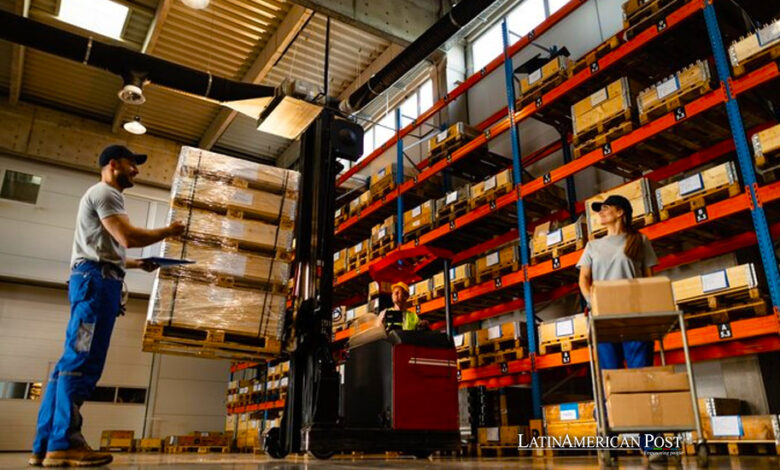Latin America Bolsters Global Supply Chains

As global dynamics shift; Latin America emerges as a pivotal player in strengthening global supply chains. Navigating through trade tensions and the pandemic, the region’s countries are leveraging their agricultural and manufacturing sectors to secure a more significant role in the global market.
Latin America is increasingly recognized for its critical role in global supply chains, offering a wealth of resources, strategic geographic positioning, and a growing manufacturing sector. As the world grapples with trade tensions, geopolitical shifts, and the aftermath of the pandemic, Latin American countries are seizing opportunities to enhance their positions in the global market. This feature explores the region’s contributions to global supply chains, from agriculture to manufacturing, and examines how nations overcome challenges to maximize their global impact.
Agricultural Powerhouse
Latin America has long been the world’s pantry, providing essential commodities such as soy, corn, coffee, and sugar. The region’s vast arable land and favorable climates have positioned it as a leading agricultural exporter. Brazil and Argentina, for instance, are among the world’s top soybean producers, while Central American countries dominate coffee. This agricultural might is vital for global food security and places Latin America at the heart of global supply chains in the agribusiness sector.
Manufacturing and Industrial Growth
Beyond agriculture, Latin America is making strides in the manufacturing sector. Countries like Mexico and Brazil have developed robust automotive and aerospace industries, attracting significant foreign investment. The nearshoring trend, accelerated by the pandemic and trade tensions, particularly with China, has benefitted Mexico due to its proximity to the U.S. market. Brazil’s industrial sector, from aircraft manufacturing to consumer goods, also plays a crucial role in Latin America’s export economy and global supply chain contributions.
Navigating Challenges
However, the path is fraught with challenges. Infrastructure deficits, bureaucratic hurdles, and political instability have historically hampered the region’s full potential in global trade. Moreover, the COVID-19 pandemic exposed vulnerabilities in Latin American supply chains, particularly in sectors reliant on international inputs. Yet, these challenges have also sparked initiatives to strengthen resilience and self-sufficiency. Governments and businesses are investing in infrastructure improvements, digitalization, and regional integration efforts to create more robust and efficient supply chains.
Trade Agreements and Regional Integration
Trade agreements and regional cooperation are pivotal in Latin America’s integration into global supply chains. The United States-Mexico-Canada Agreement (USMCA) has been a boon for Mexico’s manufacturing sector. At the same time, the Pacific Alliance (comprising Chile, Colombia, Mexico, and Peru) seeks to foster trade and economic integration among its members and with Asia-Pacific economies. Despite its challenges, Mercosur remains a significant trade bloc, negotiating trade deals with the European Union and other regions to open new markets for Latin American goods.
Digital Transformation and Innovation
Digital transformation and technological innovation are crucial to enhancing Latin America’s role in global supply chains. E-commerce, blockchain for supply chain transparency, and logistics and transportation technology advancements are being rapidly adopted across the region. These innovations improve efficiency and attract investment and partnership opportunities, further integrating Latin American companies into international networks.
Environmental Sustainability
As global supply chains face increasing scrutiny regarding their environmental impact, Latin America’s rich biodiversity and renewable energy potential offer a unique value proposition. Sustainable agriculture practices, responsible mining, and the development of green industries are areas where Latin America can lead, appealing to consumers and businesses prioritizing sustainability.
Conclusion: A Region on the Rise
Latin America stands at a crossroads, with an opportunity to redefine its role in the global economy and supply chains. The region can strengthen its international market position by addressing infrastructural and governance challenges, embracing digital innovation, and leveraging its strategic advantages in agriculture and manufacturing. Amidst shifting global dynamics, Latin America’s journey towards greater integration and influence in global supply chains is crucial for its economic future and the stability and diversity of international trade networks. As the world looks to diversify and secure supply chains, Latin America’s role is poised to expand, marking a new chapter in the region’s economic and global significance.
Also read: Latin American Cities Pioneering the Path to Sustainability and Livability





